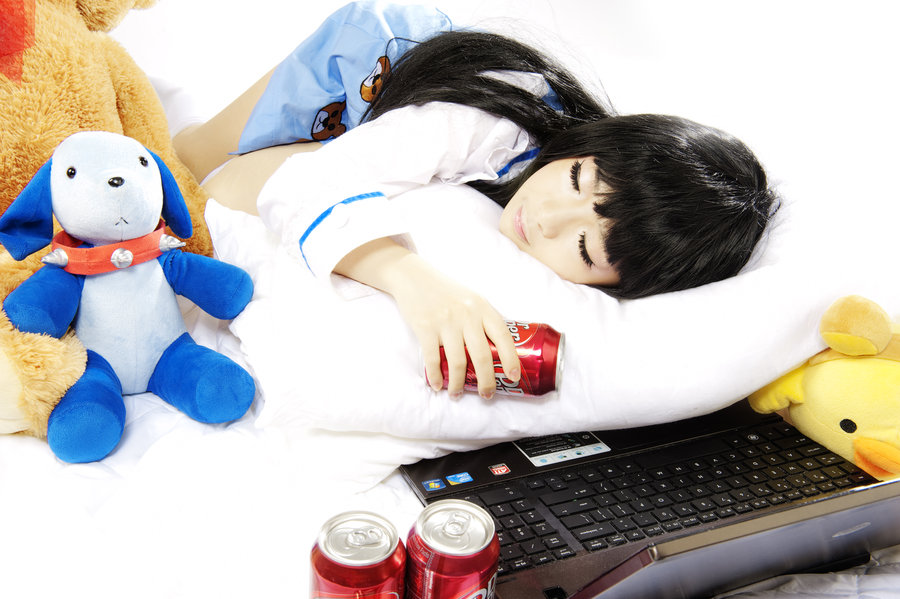The City Never Sleeps –But We Need To
Posted in UCL Pi magazine, my original version unedited:
We’ve been brought up to believe sleep is a necessary but avoidable luxury – Watching Grey’s Anatomy, Mad Men, 24 – who of them has time to snooze? Life is too busy, and we often stretch ourselves to party-filled booze nights or feverish cramming sessions. After all, sleep is something artists do, or bourgeoisie humanities students bereft of a 9am deadline. Yet sleep research highlights our misconception of those hours lost slumbering – Sleep is essential, with all animals participating in that REM/NREM cycle: fruit flies, birds and even dolphins (though in halves). The lack of it ties into problems ranging from obesity to mental illness, and impact on our ability to learn and emotionally process.

Spontaneous neuronal firing returns us to a state of synaptic homeostasis by consolidating strong synapses and likely weakening insignificant ones, thus letting us keep important memories intact. The more we use a certain part of our brain for some activity, the more that local area needs to sleep. If we ignore this need, we can find that some parts of the brain can switch off as a form of local sleep: you’ll be walking around, cranky and peeved whilst part of your brain takes a quick private snooze. Sleeping returns to a baseline level certain neuromodulators in the brain, allowing high levels of synaptic-strengthening substances to flood our brains when awake, and low levels when asleep thus ensuring optimal synaptic plasticity. Without it, microsleeps can occur – whilst that isn’t a panic-ridden experience for a student in the lecture theatre (unless a professor is feeling particularly fiendish), 31% of drivers are estimated to fall asleep at the wheel during their lifetime. A lot of potential accidents, and so easily prevented.
A research piece in the journal Obesity found strong links between sleep and health – short sleepers of less than 6 hours weighed comparatively more (1.7kg/m2) with a 3.2cm increased waistline than long sleepers of 10 hours or more. In terms of mental health, positive correlation has been found between emotional intelligence and our ‘sleep credits’ – the subjective analysis of our sleep requirement. Sleeping more than we need to stave off mental failure impacts the grey matter in our medial prefrontal cortex, resulting in decreased psychopathology ratings and increasing our emotional processing. The long term consequences of low sleep levels still aren’t clear – decreased plasticity due to decreased sleep during your younger years may significantly alter your brain structure. In the short term, less sleep means you’ll be less able to be emotionally articulate – a possible explanation for the cantankerousness of certain scientists and philosophy impresarios.
From our history of self-imposed insomnia (wars, night-shift workers, revision..) and medically problematic sleep disorders, we know there’s no real cure for achieving 100% productivity from wakefulness. The amphetamine bonanza of the first world war, the modafinil and ADHD medication stopgaps by CEO’s and programmers of today, the ‘how long can you stay awake before crashing’ competitions that students will ardently endure in the coming months. They’re a temporary aberration that your body can only stand a short while before abilities deteriorate. While we might be tempted to stave off those social anxieties with a booze-laden night, those lost hours may contribute more to anxiety than the success of intoxicated wanderings. If you really want a balanced, optimum brain, then sleep is crucial to success.
But - if you insist on partying through the night, at least take inspiration from some of our greatest dedicated nappers – Churchhill, Kennedy, Edison. Famous for their catnaps, they argued that regular rest amps up your performance ( - and students: if they happen to coincide with lectures? Well, as Albert Camus wrote – “Some people talk in their sleep. Lecturers talk while other people sleep.” But you didn’t hear that from me.)
